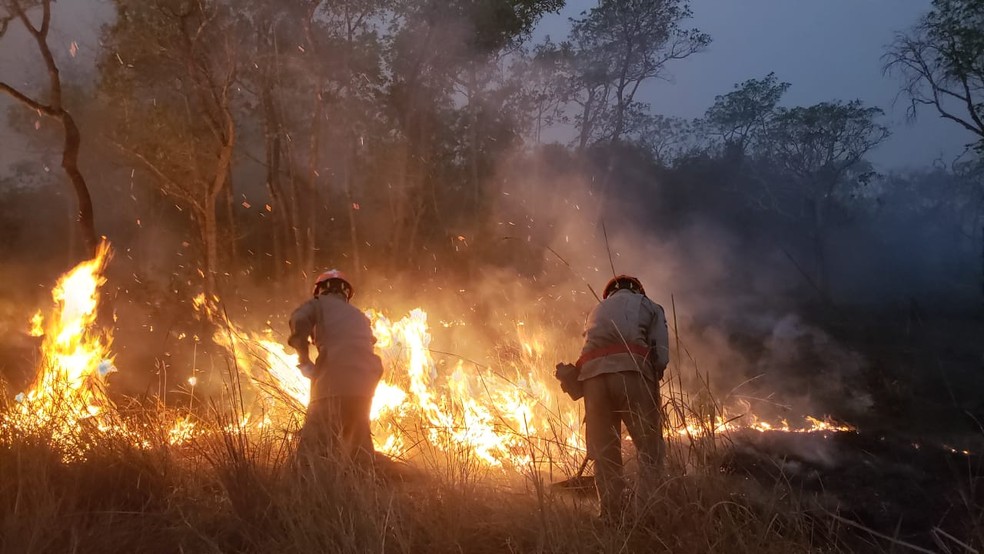RIO DE JANEIRO, BRAZIL – The fires that ravage the Pantanal, the largest wetland on the planet, are threatening a natural reserve known to shelter the largest population of jaguars in the world, alert the authorities of the state of Mato Grosso.
“Reinforcements have been deployed to fight the fire at the Encontro das Águas State Park, near the border between Brazil and Paraguay, and are centered in the eastern part of the park, known to house the largest concentration of jaguars in the world,” the local authorities stressed in a statement.
Two women and seven children, whose homes were surrounded by flames, were rescued by the teams, who are also trying to protect the 140 bridges in the region, to prevent the populations from being isolated, the text added.

Located in the Midwest region, south of the Amazon region, the Pantanal is a plain with 80 percent of its area flooded in the rainy season; it is considered a sanctuary where an extremely rich fauna is still preserved, including animals such as caimans, blue macaws, and jaguars, a species classified as “nearly endangered” by the International Union for the Conservation of Nature.
The largest area of the Pantanal (62 percent or 150,355 square kilometers) is found in Brazilian territory. About 20 percent of the biome (set of ecosystems) is located in the northern region of Paraguay and 18 percent in Bolivia.
This large plain, crossed by many rivers, was affected by a record number of fires this year. More fires have occurred in the Pantanal this year (12,102) than in 2018 and 2019 combined, according to satellite data collected by the National Space Research Institute (INPE).
In July, the satellites detected 1,684 fires in the region, a number three times higher than in July 2019, hitherto considered the worst month since the beginning of the INPE’s research in 1998.
Authorities launched Operation Pantanal II on August 7th to contain the impact of these fires and 122 firefighters are currently fighting the flames, supported by five aircraft.
Experts claim that the growth in Pantanal fires is due to the increase in illegal deforestation, which has been growing steadily each year, resulting in a series of climate changes, such as the change in the natural cycle of rainfall.
This year there has not been sufficient rainfall during the wet season, which has reduced the Pantanal’s humidity level to its lowest in recent years.

